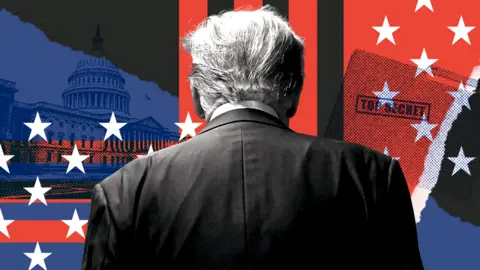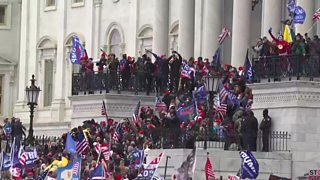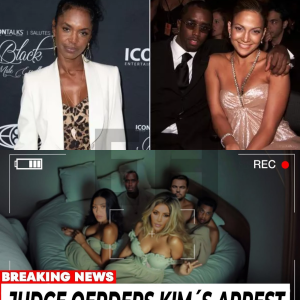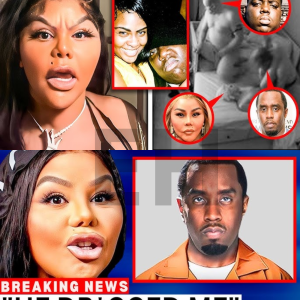
Republican Donald Trump is facing off against Democratic presidential candidate and current Vice-President Kamala Harris in November’s election. How might his criminal prosecutions affect his campaign?
The 78-year-old is the first former president in US history to be criminally convicted, having been found guilty of falsifying business records.
A few weeks later, the US Supreme Court ruled he had partial immunity in perhaps the most serious case he faces – that he tried to overturn the 2020 election result.
And it was not long before the former president scored a further legal win, when a Florida judge dismissed a case related to his handling of classified documents.
So what might happen next in his four criminal cases and what is at stake as he seeks to return to the White House?
What’s it about?
Whether Trump illegally conspired to overturn his 2020 election defeat to Joe Biden.
Federal prosecutors allege he pressured officials to reverse the results, knowingly spread lies about election fraud and sought to exploit the Capitol riot on 6 January 2021 to delay the certification of Mr Biden’s victory and stay in power.
He’s been charged with four criminal counts, including conspiracy to defraud the US and conspiracy against the rights of citizens.
Some had speculated he would be charged with insurrection, or aiding insurrection, but that is not one of the charges.
US prosecutors in August issued revised charges in an attempt to navigate a ruling from the Supreme Court that had thrown the case into doubt.
That Supreme Court ruling had said that presidents have broad immunity from criminal prosecution for official acts they undertake.
The revised indictment leaves in place the four criminal counts, but these now relate to the former president’s status as a political candidate rather than a sitting president.
It argues Trump acted as a private citizen and not as a president when he undertook the alleged scheme to sway the election.
Trump has denied wrongdoing and claimed the Biden administration is behind the prosecution. He previously pled not guilty to all charges.

When’s the trial?
It doesn’t look like it will happen any time soon.
Trump launched an appeal in this case, claiming he had broad immunity from prosecution as president, due to a 1982 precedent that recognised immunity in civil cases.
Lower courts rejected Trump’s claim but the Supreme Court ruled that Trump had limited immunity for official acts he carried out as president.
But the revised indictment shows that Department of Justice (DoJ) Special Counsel Jack Smith interprets the Supreme Court ruling to mean his case can still move forward.
Mr Smith’s office said the superseding indictment had been presented to a new grand jury that had not previously heard evidence in the case.
But whether it would satisfy the Supreme Court’s presidential immunity framework remains unclear.
There is a strong chance some of the charges may not survive.
If Trump wins re-election, he could in theory pardon himself or order all these charges to be dismissed.





